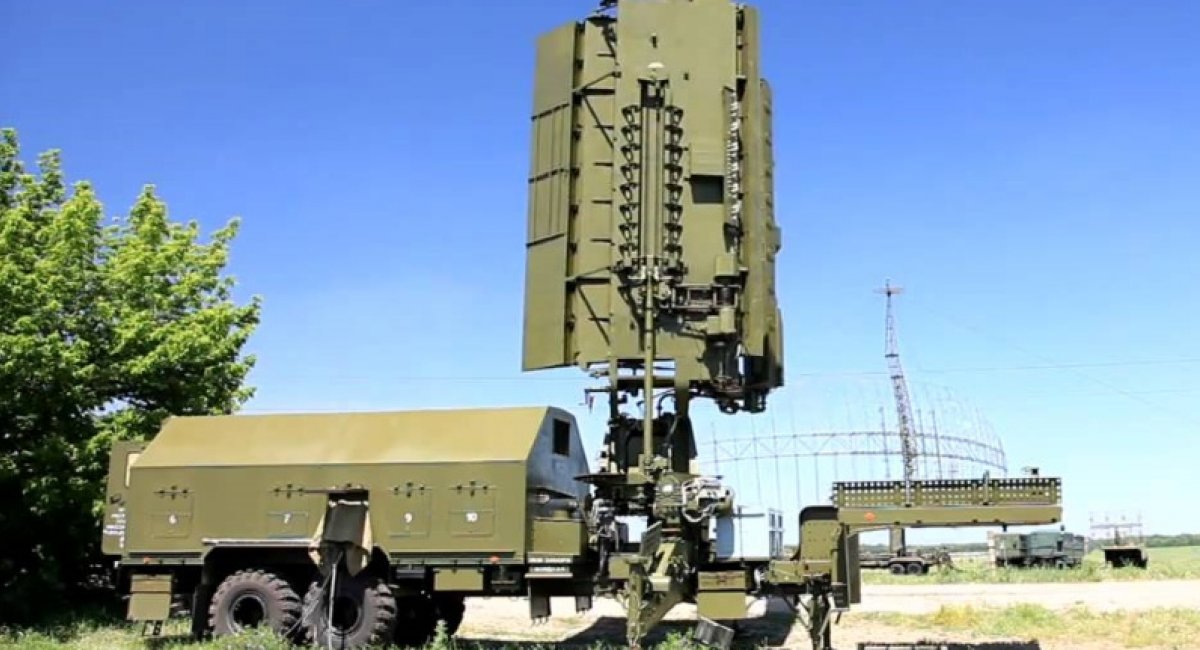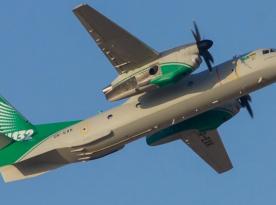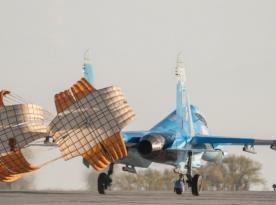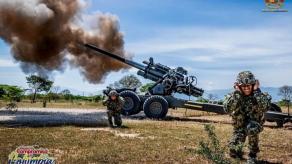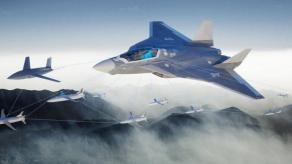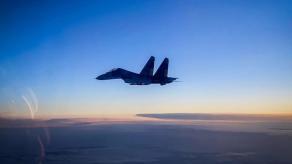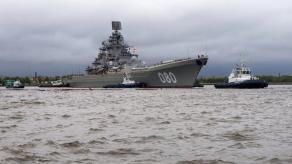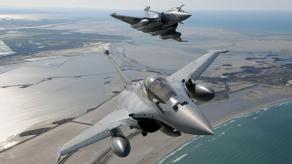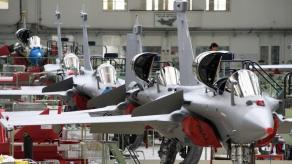Ukrainian industries have been producing new radar products while upgrading and updating already proven technologies.
36D6M. The portfolio of radar technology products of R&D and Production Complex Iskra’s, a State-run company incorporated with the Ukroboronprom defense industries group, includes the 36D6M, a vehicle-carried 3D airspace surveillance radar system. It is meant to be used as a part of modern automated Air Defense systems and SAM batteries, and to search low-flying aerial targets in various active and passive jamming scenarios, as well as to support Air Traffic Control operations for both military and civilian purposes.
Read more: Turkey-Ukraine work on missile engine could open the door to tech transfer
The 36D6M is an upgrade to the proven, Soviet-legacy 35D6 technology. The upgrade adds modern capabilities for data preprocessing/reprocessing and for data transmission and mapping; and increases the number of operator workstations. The use of advanced signal processing capabilities like the IBM-PC enables dramatic improvements in the System’s performance and reliability, and would make the product more competitive on the international marketplace. The 36D6M has been adopted by the Ukrainian Air Forces to serve as the core type of SHF radar.
Upgrading the 35D6 technology to the 36D6М standard includes the following:
- capabilities to make the Operator’s Workstation more informative and to enable the generation and mapping of target tracking data;
- System reliability increased up to 800 hours of mean-time-between-failures;
- improved receive chain sensitivity;
- radar range extended to 360 km;
- increased number of Operator Workstations, equipped with color raster-scan displays;
- new IMB PC-compatible computer with new software;
- world-class FoF identification system;
- 6UF25 subsystem to enable coordination with air defense units and weapons.
The key advantages the 36D6 upgrade has over its 35D6 predecessor include high probability of success against low-RCS targets and hovering helicopters, including those low flying tangentially to the radar antenna; highly accurate location finding capability; enhanced immunity against enemy jamming attempts; ability to spot the location of enemy jammers; automatic association of echo signals with return signals of the built-in IFF equipment; high reliability and mobility performance.
36D6 3D Surveillance Radar. Key Specifications
|
Operating frequency range |
S |
|
Scan sectors: range, km azimuth, deg elevation, deg (two rounds) |
90,180,360 360 0...30 |
|
Scanning interval, s |
5.1 |
|
Detection range for a 1m2 RCS target: at 100 m altitude, km at 1,000 m altitude, km |
42 110-115 |
|
Antenna type |
Mirror |
|
Transmitter peak power, kW |
350 |
|
Number of beams |
4 |
|
Level of clutter suppression, dB |
>48 |
|
Level of jamming suppression, dB |
20 |
|
Track throughput |
³300 |
|
Number of vehicles required for transportation |
2 |
|
Deployment/stow time, min |
30 |
Besides modernization of 36D6 radar Ukraine is upgrading legacy designs with proven performance. Thus, Radionix, Kyiv, has upgraded the proven P-18 technology to the P-18MR configuration that has been unofficially nicknamed “hunter for the stealth”.
The P-18MR upgrade is provided with the capabilities for automatic target search and tracking, and for finding range and azimuth of the targets being tracked. It has not changed much from the baseline original in composition, consisting of a mast-mounted antenna array, power supply unit and equipment shelter – all accomodated on domestically produced KrAZ-6322-type truck vehicle platforms.
The upgrade includes substential improvements to the System’s characteristics and performance parameters, with the target detection range extended to 400 km and a capability added to counter active jamming in addition to passive jamming. These improvements have been enabled by adding a solid state transmitter-receiver and introducing digital processing of return signals among other things.
To counter noise jamming, the upgraded radar employs pseudo random frequency hopping within the full 145-175MHz operating frequency range.
The radar is controlled by an automated workstation equipped with a dedicated computer for secondary processing of target data and a color display for showing the current air picture. If deployed in field conditions, the radar can be controlled remotely from a remote workstation. In this case, control will be via a modem communication link using the ASTERIX data format (CAT001, 002,034, 048), via HDLC, RS232C or Ethernet.
The 36D6 upgrade is expected to extend the system’s operational life by another 20 years.
36D6 Radar System. Key Specifications
Operating frequency range, MHz | 145 – 175 |
Dimensions being found | azimuth, range |
Target detection distances, km | 4 – 400 |
Detection distance for a 1m2 RCS target with ha=6.35m and a 0.5 probability of success, km: at 100 m altitude at 500 m altitude at 5,000 m altitude at 10,000 m altitude at 15,000 m altitude | 35 60 120 240 360 |
Rate of antenna rotation, rpm | 3/6 |
Target location error: - range, m - azimuth, deg | 180 0.4 |
Resolution: - for range, m - for azimuth, deg | 1,200 6 |
Level of active jamming suppression, dB | 20 |
80K6T. R&D and Production Complex Iskra, a State-run company incorporated with the Ukroboronprom defense industries group, is pursuing the development of an advanced digital Active Phased Array Radar (APAR) solution that the Company has already implemented in its brand new 80K6T technology.
The 80К6Т - a three-dimensional, 360-degree Ground Controlled Interception (GCI) air defense search radar – provides a broad range of target search and location finding capabilities; it is able to function effectively even in the presence of substantial environmental and electronic countermeasures influences.
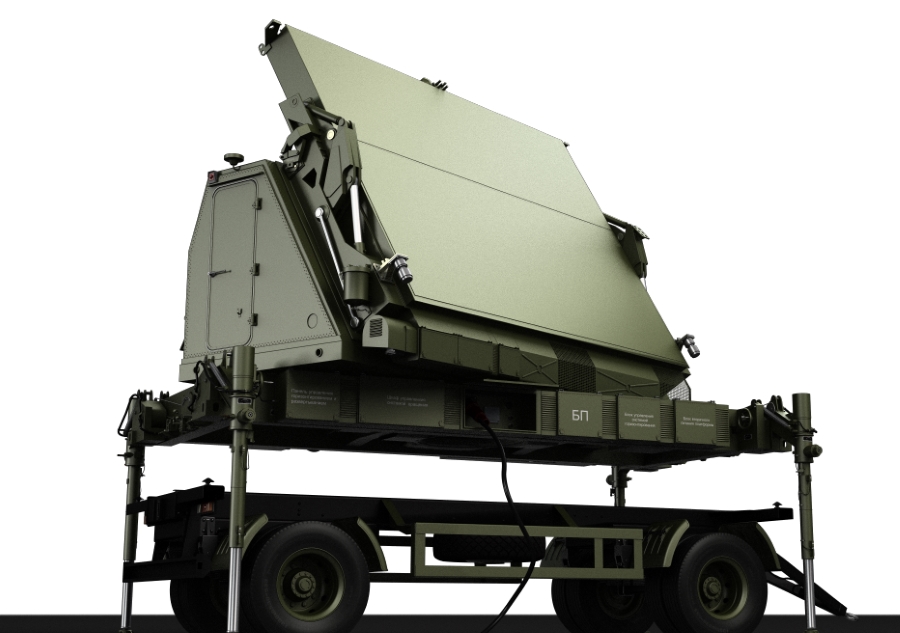
The 80K6T product integrates technology solutions for high-resolution search, detection and tracking of aerial threats of various kinds. Being a digital active phased array radar, the 80K6T enables targets to be searched and tracked with ultra-high resolution while simultaneously providing a three-dimensional measurement solution for range, azimuth and elevation in an integrated package. It is able to detect aerial threats out to ≤500 km in range and ≥40 km in altitude, and track up to 500 targets simultaneously.
The radar antenna rotates at the rate of 12 rpm, thus enabling target data to be updated in every five seconds, while the radar’s 70-degree elevation capability enables early detection of short-range tactical missile attacks. The technology furthermore uses advanced radar output processing algorithms for highly effective search of low-RCS threats and highly maneuverable cruise missiles while flying on extremely low-altitude trajectories.
The 80K6T radar technology is fully compatible with the SAM capabilities currently operational with Ukraine’s Armed Forces, and it is suitable for use also during Air Force operations.
To ensure high tactical mobility, the 80K6T radar is carried on two truck vehicle platforms accommodating operator workstations and power supply units, and radar control equipment respectively. The radar moves from stowed to ready configuration in 10-15 minutes.
For strategic mobility, the 80K6T is designed to be air transportable with light military transport aircraft.
80K6T Radar System. Key Specifications
Operating frequency range | S |
Maximum radar operation limits: in range, km in azimuth, deg in elevation, deg in altitude, km | 500 360 0...70 40 |
Scanning interval, s Target detection range, RCS=3m2 (at P=0,8 F=10-6): at flight altitude 10...30km | 5, 10, 20 350 |
Transmitter type | Solid State |
Transmitter peak power, kW | 30 |
Antenna type | DAPAR |
Number of beams | 16 |
Clutter suppression, more, dB | 50 |
Jamming cancelling, more, dB | 20 |
Track throughput, more than | 300 |
IFF equipment | built-in |
Number of transport units | 2 |
Read more: Straight on target



